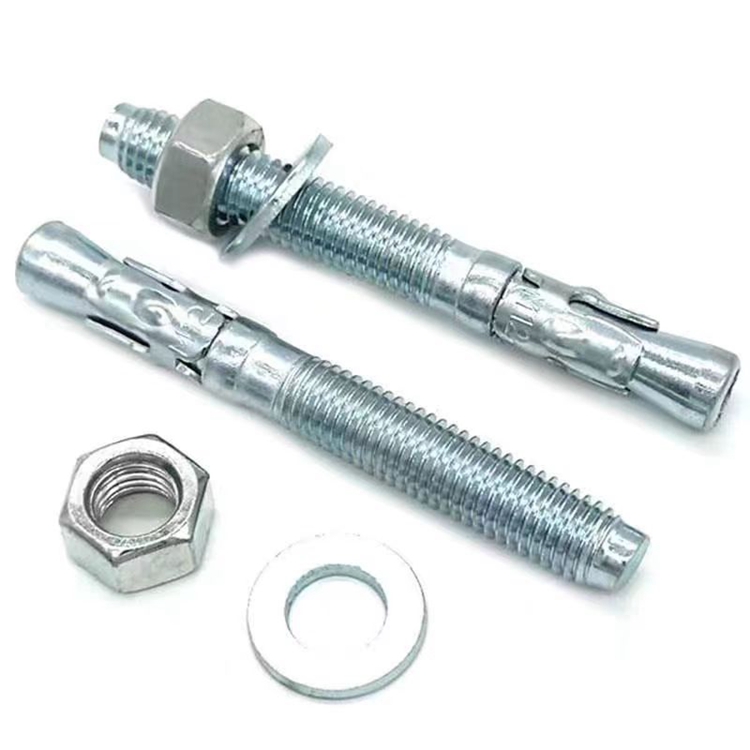Manufacturers of DIN 207504 Self-Drilling Screws and Their Applications
Aug . 21, 2024 06:11 Back to list
Manufacturers of DIN 207504 Self-Drilling Screws and Their Applications
Exploring DIN 7504 Self-Drilling Screws A Spotlight on Manufacturing
Self-drilling screws have become an essential component in construction and manufacturing, particularly due to their efficiency and ease of use. Among the various standards governing screw specifications, DIN 7504 focuses on self-drilling screws, providing guidelines for their design, dimensions, and mechanical properties. This article delves into the key aspects of DIN 7504 self-drilling screws and highlights the role of factories in producing these essential fasteners.
Understanding DIN 7504 Self-Drilling Screws
DIN 7504 screws are specifically designed to eliminate the need for pre-drilling, making them particularly valuable in applications where speed and ease of assembly are crucial. These screws feature a drill point that allows them to penetrate and secure various materials effectively, including metal, wood, and composite materials. The design incorporates a thread that can cut into the material, ensuring a firm grip without the need for additional hardware.
The DIN (Deutsches Institut für Normung) standard ensures that these screws meet specific quality and performance criteria, which helps manufacturers maintain consistency and reliability in their products. The standard covers various specifications, including dimensions, thread design, head shape, and material quality.
The Role of Factories in Production
The manufacturing of DIN 7504 self-drilling screws involves several stages, including raw material procurement, machining, heat treatment, surface finishing, and quality control. Factories dedicated to producing these screws utilize advanced machinery and technology to ensure precision and efficiency throughout the manufacturing process.
din 7504 self drilling screws factories

1. Raw Material Selection The production of self-drilling screws typically begins with the selection of high-quality steel or other materials. The choice of material is crucial, as it directly influences the mechanical properties and corrosion resistance of the screws.
2. Machining After selecting the raw materials, factories proceed with the machining process. This involves cutting and shaping the metal into the desired screw profile. The machining must adhere to the strict dimensions outlined in the DIN 7504 standard to ensure compatibility with various applications.
3. Heat Treatment To improve strength and durability, many factories employ heat treatment processes. This step enhances the material properties of the screws, allowing them to withstand various stresses encountered during their use.
4. Surface Finishing The surface treatment of DIN 7504 screws is vital for preventing corrosion and enhancing the overall aesthetics of the product. Factories commonly use coatings such as zinc plating, black oxide, or powder coating, depending on the intended application and environmental exposure.
5. Quality Control Rigorous quality control measures are implemented to ensure that each batch of screws meets the required standards. Factories conduct various tests, including tensile strength tests, torque tests, and corrosion resistance evaluations, to verify the performance of their products.
Conclusion
In conclusion, DIN 7504 self-drilling screws play a significant role in modern construction and manufacturing, offering an efficient solution for fastening materials without the need for pre-drilling. The factories that produce these screws are equipped with advanced technology and adhere to strict standards to ensure quality and performance. As industries continue to evolve, the demand for reliable and effective fastening solutions will keep growing, highlighting the importance of DIN 7504 self-drilling screws and the factories that manufacture them. Through continuous improvement and innovation, these factories will remain pivotal in meeting the ever-increasing needs of the construction and manufacturing sectors.
Latest news
-
High-Quality Panel Stud Bolt Reliable Panel Stud Bolt Factory & Suppliers
NewsJul.08,2025
-
High-Precision Fine Thread Locknuts Manufacturer & Supplier Custom Solutions
NewsJul.08,2025
-
PH Imperial Stud Bolt – High Strength Fasteners from Leading Supplier & Factory
NewsJul.07,2025
-
High-Quality Allen Wrench Bolts Leading Factory, Company & Suppliers
NewsJul.07,2025
-
Wholesale Ball Stud Bolt - High Quality Supplier & Factory Price Reliable Wholesale Ball Stud Bolt Company
NewsJul.06,2025
-
High-Strength Alloy Bolts Manufacturer & Supplier Quality Alloy Fasteners Factory
NewsJul.06,2025
